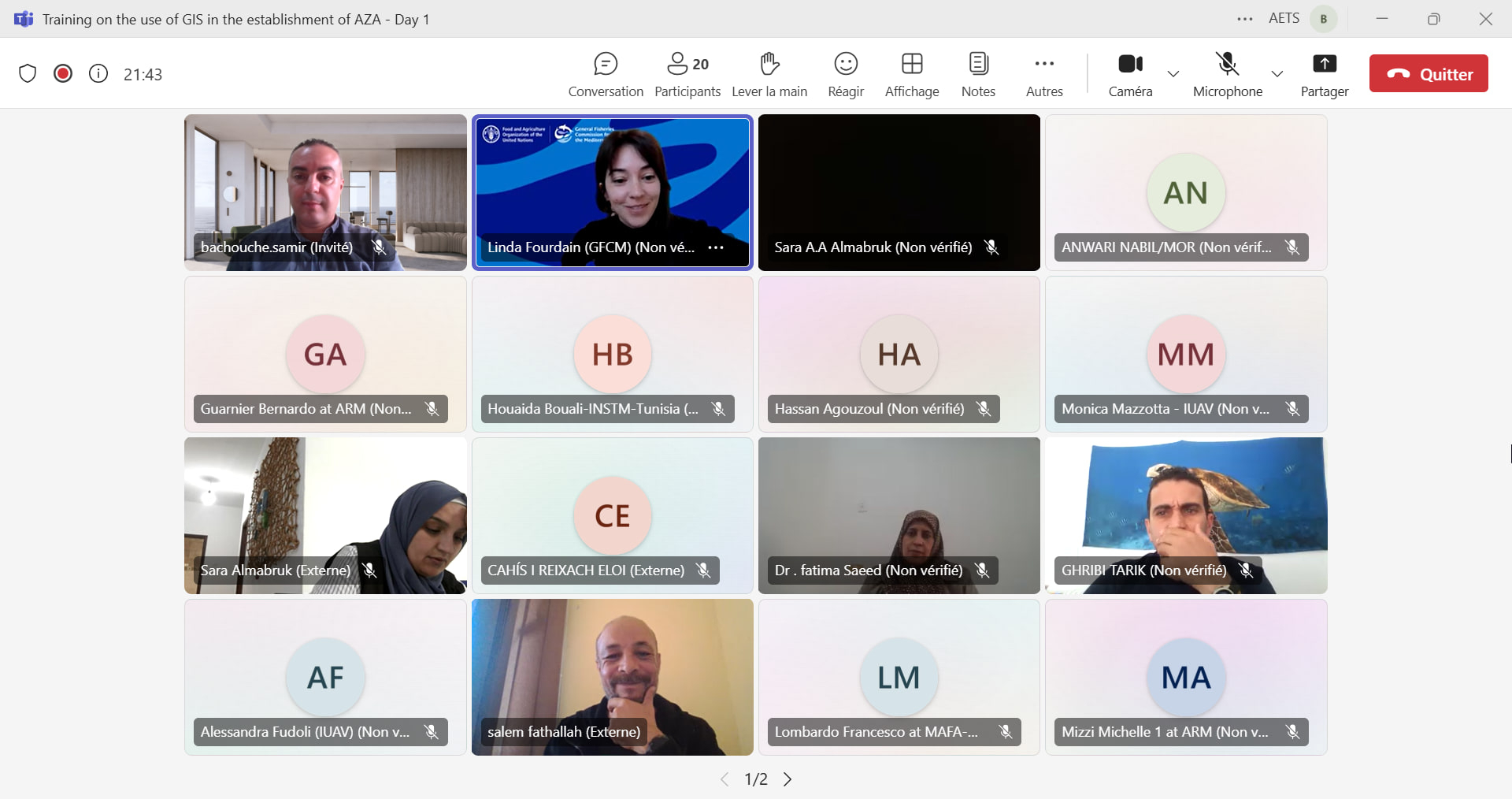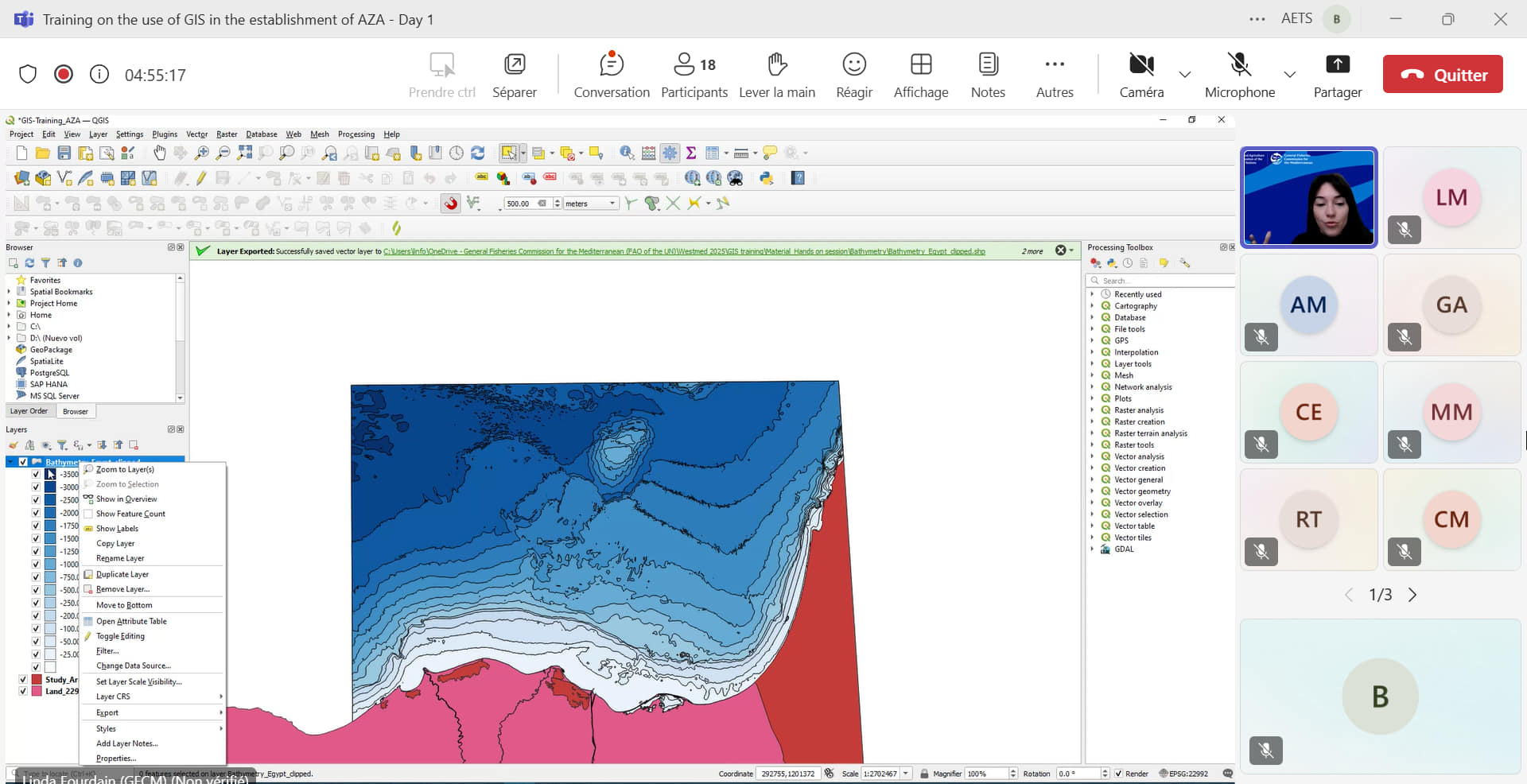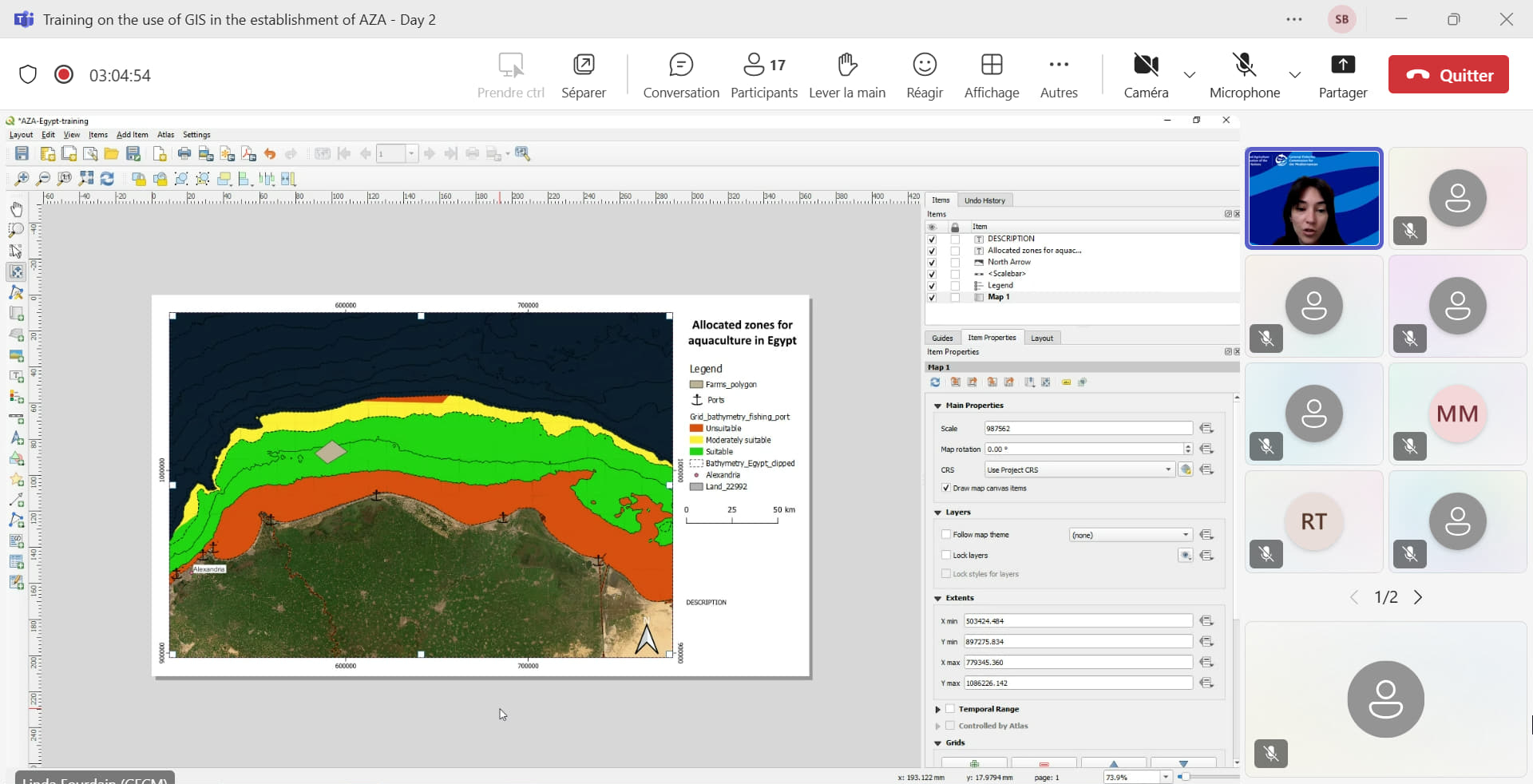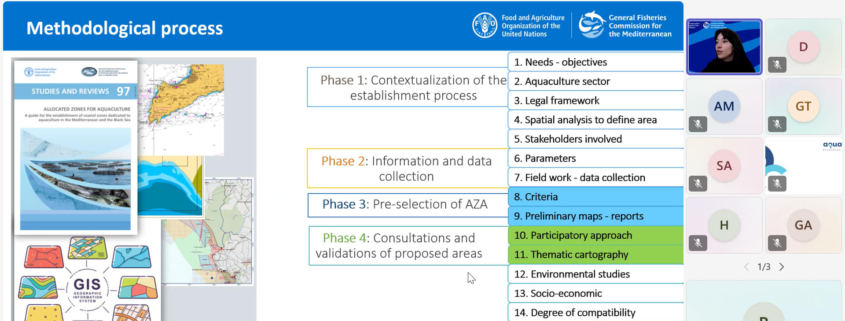Joint training by GFCM and WestMED: Using a Geographic Information System tool to establish Allocated Zones for Aquaculture
The General Fisheries Commission for the Mediterranean (GFCM), organised a succesful online training on the use of Geographic Information Systems (GIS) for Aquaculture Zoning in the WestMED region, under the AquaWest Technical Group of the WestMED Initiative.
Conducted over two days, (14-15 April 2025), more than 22 participants from various WestMED countries attended. This collaborative event marked a step forward in promoting sustainable aquaculture practices through spatial planning tools.
Context and objective
With increasing demands on marine and coastal resources, spatial planning has become essential for sustainable aquaculture development. The training course was designed to build regional capacity in the use of GIS tools, specifically QGIS, an open-source platform, to identify and manage Allocated Zones for Aquaculture (AZA). These zones help ensure that aquaculture activities are sited in environmentally, economically, and socially appropriate areas.
Linda FOURDAIN, Expert and Aquaculture Consultant, FAO/GFCM, presented the course and provided participants with both theoretical insights and practical skills. Topics ranged from an overview of marine spatial planning and AZA concepts to hands-on sessions using QGIS. Participants learned how to work with geographic and projected coordinate systems, process vector data, apply exclusion and suitability criteria, and generate spatial maps for aquaculture planning.
Highlights
Some key elements of the training included:
- Introduction to GIS and QGIS interface navigation.
- Hands-on digitization of remote sensing data and editing of attribute tables.
- Mapping of exclusion zones and calculation of suitability indices for aquaculture siting.
- Final map creation using QGIS layout tools.
Follow-up
Given the positive feedback and the strategic importance of aquaculture zoning in the Mediterranean region, plans are underway to organize additional training sessions. These may include in-person workshops, advanced GIS modules, and regional case studies to deepen practical understanding. The initiative is part of a broader effort by the GFCM and its partners to harmonize aquaculture development with ecosystem-based management and regional policy objectives.
These efforts contribute to the long-term sustainability of aquaculture in the WestMED area, fostering collaboration and innovation across borders.
For more information, contact Samir bachouche (WestMED National Hub Algeria | AquaWest – WestMED Aquaculture Technical group)






